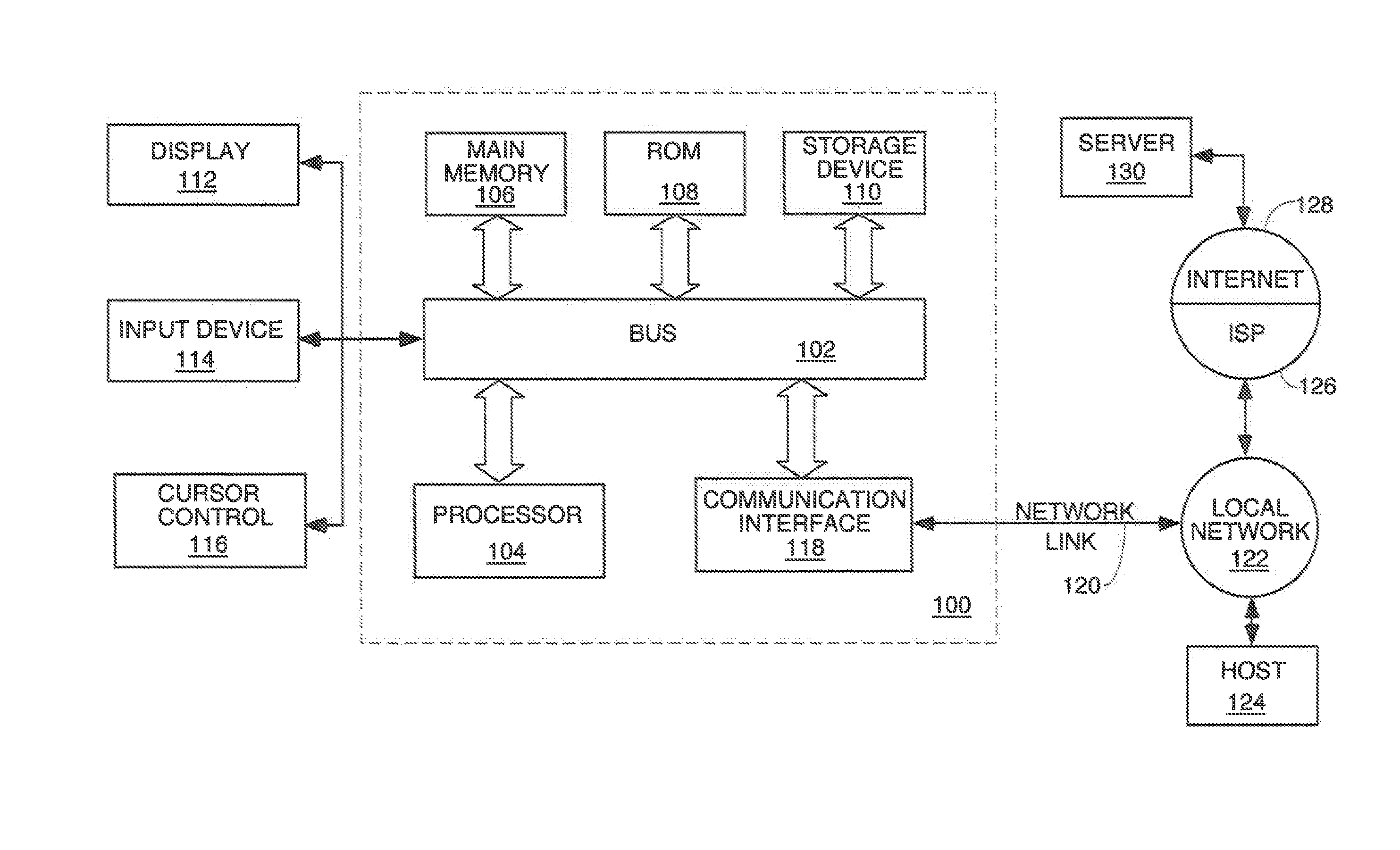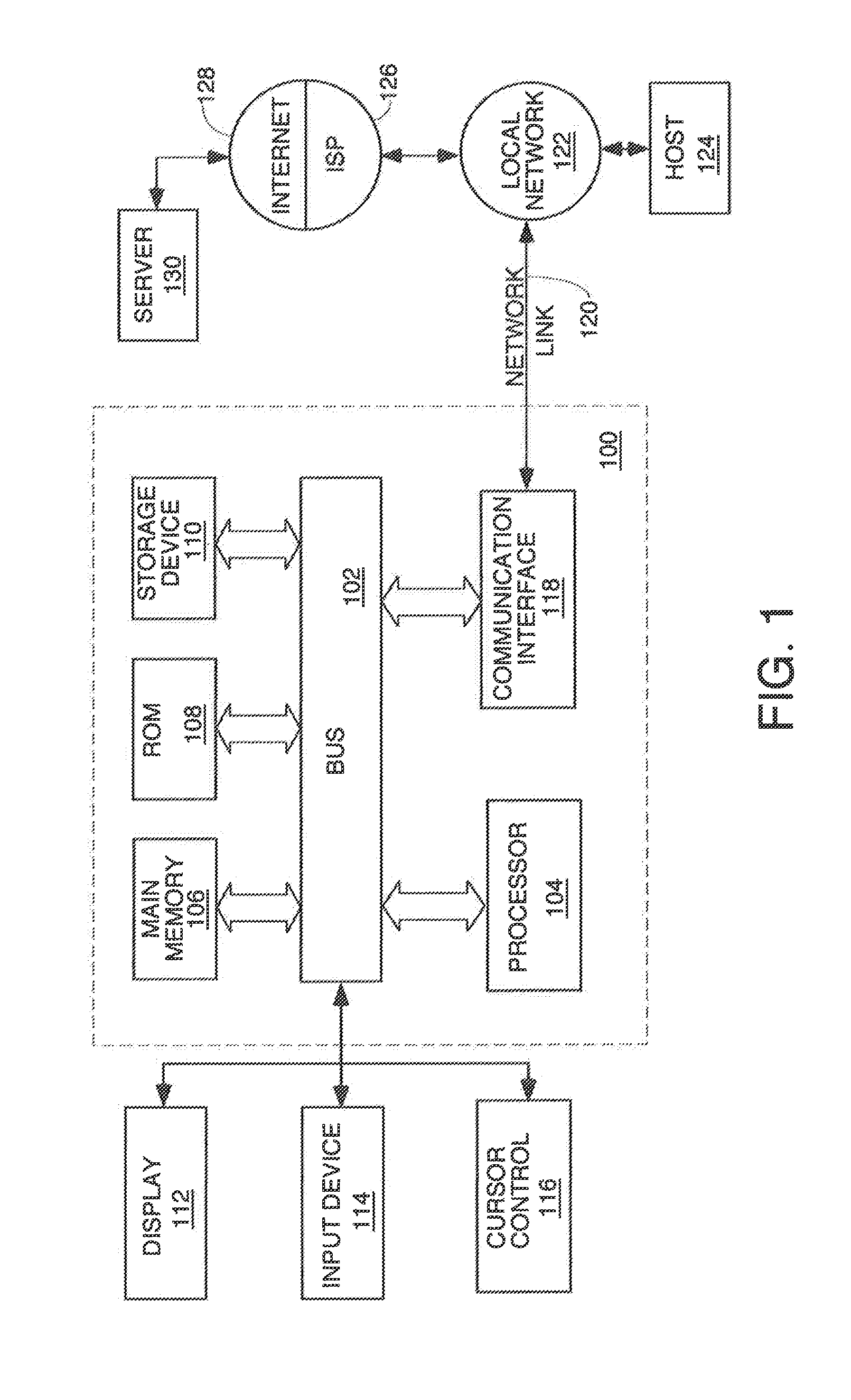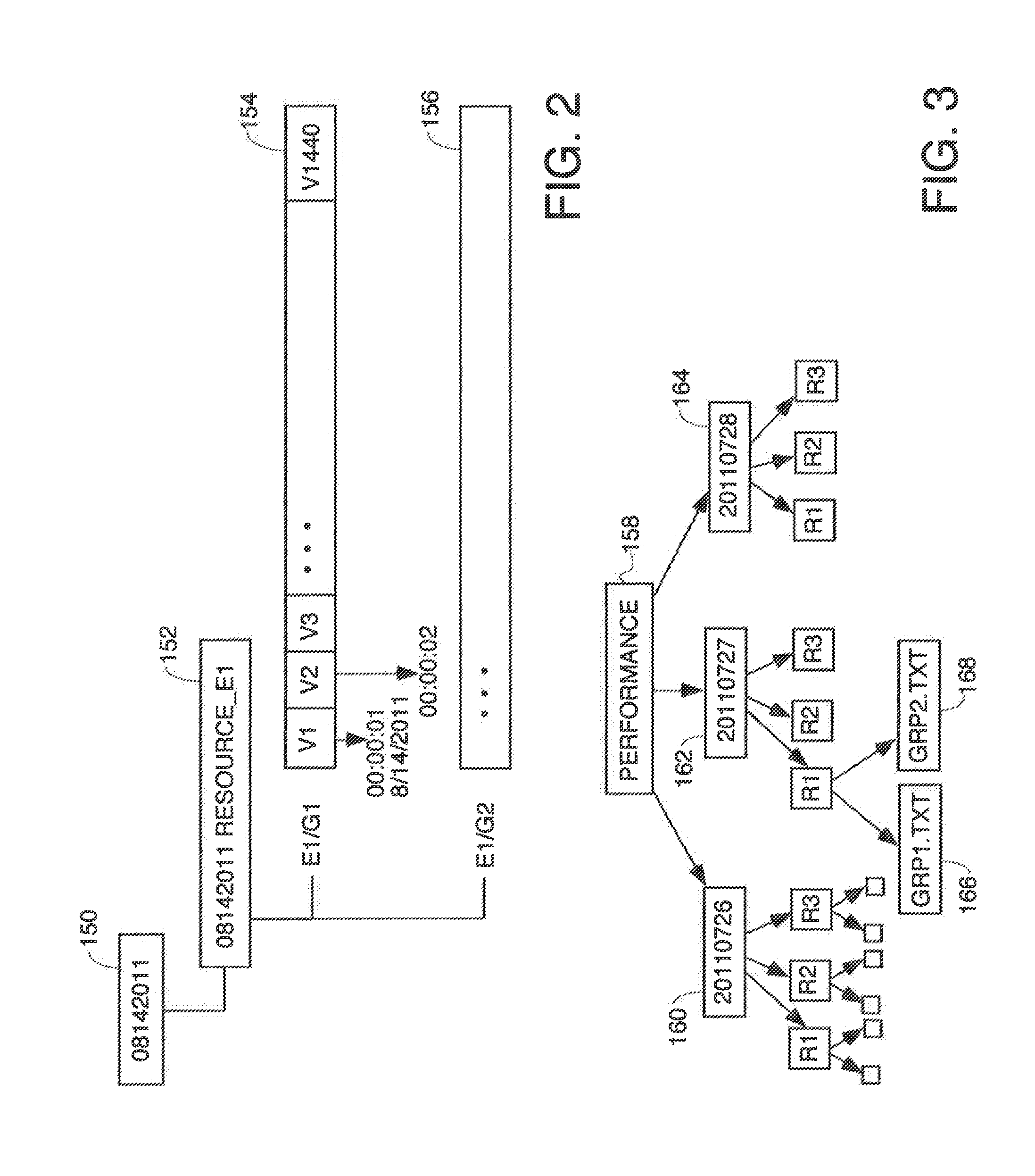System and a process for searching massive amounts of time-series performance data using regular expressions
a time-series performance and process technology, applied in the field of system and process for searching massive amounts of time-series performance data using regular expressions, can solve the problems of high cost, difficult management of virtual servers, and need for reliable high-bandwidth connection
Active Publication Date: 2015-11-12
CUMULUS SYST INC
View PDF3 Cites 24 Cited by
- Summary
- Abstract
- Description
- Claims
- Application Information
AI Technical Summary
Benefits of technology
The patent text describes a way to quickly and easily find relevant performance data in a database. This is done by filtering out data for resources that don't meet certain requirements. This allows the processor to quickly find only the information it needs, which can save time and improve performance.
Problems solved by technology
Management of these virtual servers is challenging since tools to gather, organize, store and analyze data about them are not well adapted to the task.
The disadvantage of this method is the need for a reliable high bandwidth connection over which the virtual private network sends its data.
This can be a problem and expensive especially where the monitored server is overseas in a data center in, for example, India or China, and the monitoring computer is in the U.S. or elsewhere far away from the server being monitored.
This method also suffers from the need for a high bandwidth data link between the monitored and monitoring servers.
This high bandwidth requirement means that the number of remote servers that can be supported and monitored is a smaller number.
Scalability is also an issue.
Once performance data has been gathered, if there is a huge volume of it, analyzing it for patterns is a problem.
Several limitations result from using relational databases and SQL queries.
First, there is a ripple that affects all the other rows of existing data as new indexes are computed.
Another disadvantage is the amount of storage that is required to store performance metric data gathered by the minute regarding multiple attributes of one or more servers or other resources.
Storing performance data in a relational database engenders an overhead cost not only in time but also money in both storing it and storing it in an indexed way so that it can be searched since large commercial databases can be required if the amount of data to be stored is large.
But SQL queries are not good when the need is to check for patterns in values of columns in a series of adjacent rows.
This is burdensome, time consuming and expensive to have to write a custom program each time a search for a pattern is needed.
As the pattern being searched for becomes more complex, the complexity of the stored procedure program also becomes more complex.
This becomes impractical as the number of joins exceeds 2 or 3.
As noted earlier, the problems compound as the amount of performance data becomes large.
The dataset can also become very large when, for example, there is a need to store several years of data.
Large amounts of data require expensive, complex, powerful commercial databases such as Oracle.
Method used
the structure of the environmentally friendly knitted fabric provided by the present invention; figure 2 Flow chart of the yarn wrapping machine for environmentally friendly knitted fabrics and storage devices; image 3 Is the parameter map of the yarn covering machine
View moreImage
Smart Image Click on the blue labels to locate them in the text.
Smart ImageViewing Examples
Examples
Experimental program
Comparison scheme
Effect test
example 3
‡ p1, p2 && p3_Note: p1 can qualify irrespective of p2 status but p2 can qualify only if p3 qualifies
Example 4: p1 / &p2 / p3 / &p4 ‡ p1&&p2, p3&&p4_Note: p2 can qualify irrespective of p3 status
At Filter Level:
[0171]_Syntax: P1[filter1][&][filter 2][&][filter 3] / P2[filter 1][&][filter 2]
example 1
rx Demo3]&[@2001 rx b U10+]_Note: P1 qualifies if both the filters find matches
example 2
&[f3]‡ (f1 ∥ f2) && f3
Example 3: p[f1]&[f2][&f3]‡ f1 && f2 && f3
the structure of the environmentally friendly knitted fabric provided by the present invention; figure 2 Flow chart of the yarn wrapping machine for environmentally friendly knitted fabrics and storage devices; image 3 Is the parameter map of the yarn covering machine
Login to View More PUM
 Login to View More
Login to View More Abstract
A system to collect and analyze performance metric data recorded in time-series measurements, converted into unicode, and arranged into a special data structure. The performance metric data is collected by one or more probes running on machines about which data is being collected. The performance metric data is also organized into a special data structure. The data structure at the server where analysis is done has a directory for every day of performance metric data collected with a subdirectory for every resource type. Each subdirectory contain text files of performance metric data values measured for attributes in a group of attributes to which said text file is dedicated. Each attribute has its own section and the performance metric data values are recorded in time series as unicode hex numbers as a comma delimited list. Analysis of the performance metric data is done using regular expressions.
Description
BACKGROUND OF THE INVENTION[0001]In the management of IT systems and other systems where large amounts of performance data is generated, there is a need to be able to gather, organize and store large amounts of performance data and rapidly search it to evaluate management issues. For example, server virtualization systems have many virtual servers running simultaneously. Management of these virtual servers is challenging since tools to gather, organize, store and analyze data about them are not well adapted to the task.[0002]One prior art method for remote monitoring of servers, be they virtual servers or otherwise, is to establish a virtual private network between the remote machine and the server to be monitored. The remote machine to be used for monitoring can then connect to the monitored server and observe performance data. The advantage to this method is that no change to the monitored server hardware or software is necessary. The disadvantage of this method is the need for a ...
Claims
the structure of the environmentally friendly knitted fabric provided by the present invention; figure 2 Flow chart of the yarn wrapping machine for environmentally friendly knitted fabrics and storage devices; image 3 Is the parameter map of the yarn covering machine
Login to View More Application Information
Patent Timeline
 Login to View More
Login to View More Patent Type & Authority Applications(United States)
IPC IPC(8): G06F17/30
CPCG06F17/30595G06F17/30592G06F17/30958G06F17/30669G06F17/30985G06F17/30106H04L43/04G06F11/3476G06F11/3072G06F11/3409H04L12/4625H04L43/12H04L43/14H04L67/025H04L69/329G06F16/43G06F16/86G06F16/148G06F16/185G06F16/245G06F16/258G06F16/283G06F16/284G06F16/334G06F16/335G06F16/951G06F16/2423G06F16/2452G06F16/2453G06F16/2455G06F16/2468G06F16/2477G06F16/3331G06F16/3337G06F16/9024G06F16/9032G06F16/9535G06F16/24522G06F16/90344G06F21/552G06F2216/03G06F16/90335G06F16/248G05B23/0272G06F40/205G06F40/126G06F40/146G06F40/106H04L9/40H04L67/00H04L67/01G06F11/3006G06F11/3082H04L43/022G06F16/36G06F16/3329G06F16/338G06F16/383G06F16/31
Inventor BHAVE, AJITRAMACHANDRAN, ARUNNADIMPALLI, SAI KRISHNAM RAJUBELE, SANDEEP
Owner CUMULUS SYST INC
Features
- R&D
- Intellectual Property
- Life Sciences
- Materials
- Tech Scout
Why Patsnap Eureka
- Unparalleled Data Quality
- Higher Quality Content
- 60% Fewer Hallucinations
Social media
Patsnap Eureka Blog
Learn More Browse by: Latest US Patents, China's latest patents, Technical Efficacy Thesaurus, Application Domain, Technology Topic, Popular Technical Reports.
© 2025 PatSnap. All rights reserved.Legal|Privacy policy|Modern Slavery Act Transparency Statement|Sitemap|About US| Contact US: help@patsnap.com



